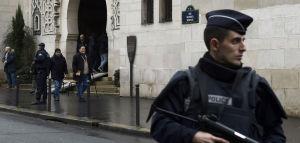
It was condemned by the Arab League, the Organization of Islamic Cooperation, and others. Cartoonists of Tunisian and Algerian publications expressed their solidarity with their French colleagues, accompanying their condolences with drawings.
These attacks cannot be justified in any way, emphasized the influential newspaper “Al-Quds Al-Arabi”, published in London, which, however, does not contradict the prohibition of denigrating any religion, faith, or their prophets. This is not to infringe on the freedom of expression. The analysis of religious creeds in mainstream scientific discourse is one thing, it is another to make fun of sacred symbols of believers. But it is also inadmissible to respond to such publications with killings or massacres, according to the newspaper.
Against the background of the resonant campaign of the battle against barbarism, in solidarity with its victims and freedom of expression in France, some of the details of the recent events remained in the shadows.
Arab authors mention them. In particular, the fact that the murderers and the victims in the latest incident were French. One of the victims on the staff of “Charlie Hebdo” and the policeman both have Arabic roots. The latter gave his life defending the journalists and their right to freely create and draw cartoons on any topic.
Moreover, according to French law, the weekly is permitted to be sarcastic over Islam, but it cannot print the cartoons that mock the Holocaust, says Moroccan writer Laila Lalami, employee of the University of California.
There are fears that the incident is fraught with a new turn of the West against both the Islamic states and the religion of Islam.
One of the consequences seen is the tightening not only of counter-rhetoric, but also measures to prevent new attacks that could affect the rights of citizens of the Islamic faith in Europe. The Algerian newspaper “Al-Shuruk” believes that this incident was a gift to right-wing extremists, and the Muslims in France should be expecting hard times. The terrorist attack in Paris increasingly spurred considerable controversy in the Arab media space, swirling around the theme of politicization of Islam, terrorism, and the West’s position on this issue.
The Arabic newspaper “Al-Hayat” does not rule out that the recent terrorist attacks in the French capital will sound a powerful warning siren, which will motivate Western countries to make major shifts in their policy in the Middle East and North Africa. The international coalition’s bet on air strikes against ISIS in Syria and Iraq proved to be ineffective. The goal must be to overcome terrorism in its nest, for which the head of the hydra must be cut off. Perhaps the coming months will bring a surprise in this context, the newspaper said. But what will it be?
The focus of the current controversy is the thesis that Islam and Muslims were the main victims of the crime in Paris. A blow was struck to moderate Islam. Some people in Europe and elsewhere have begun to equate it with a bunch of terrorists obsessed with destroying each and every person on their criminal ways.
It is for a reason, analysts say, that the struggle against the rhetoric of Islamic radicals who have chosen young people as their target (in which they have clearly succeeded) must be intensified.
Syrian media activist Maysa Akbik sees the spread of terrorism in the region through the prism of poverty and underdevelopment in which its people live due to the fact that the West has supported and still supports the corrupt ruling regimes.
As long as this continues, the sources of terrorism will not be exhausted and it cannot be eradicated by force of arms alone.
Yuri Zinin, Senior Research Fellow at the Moscow State Institute of International Relations (MGIMO), exclusively for the online magazine “New Eastern Outlook”.
